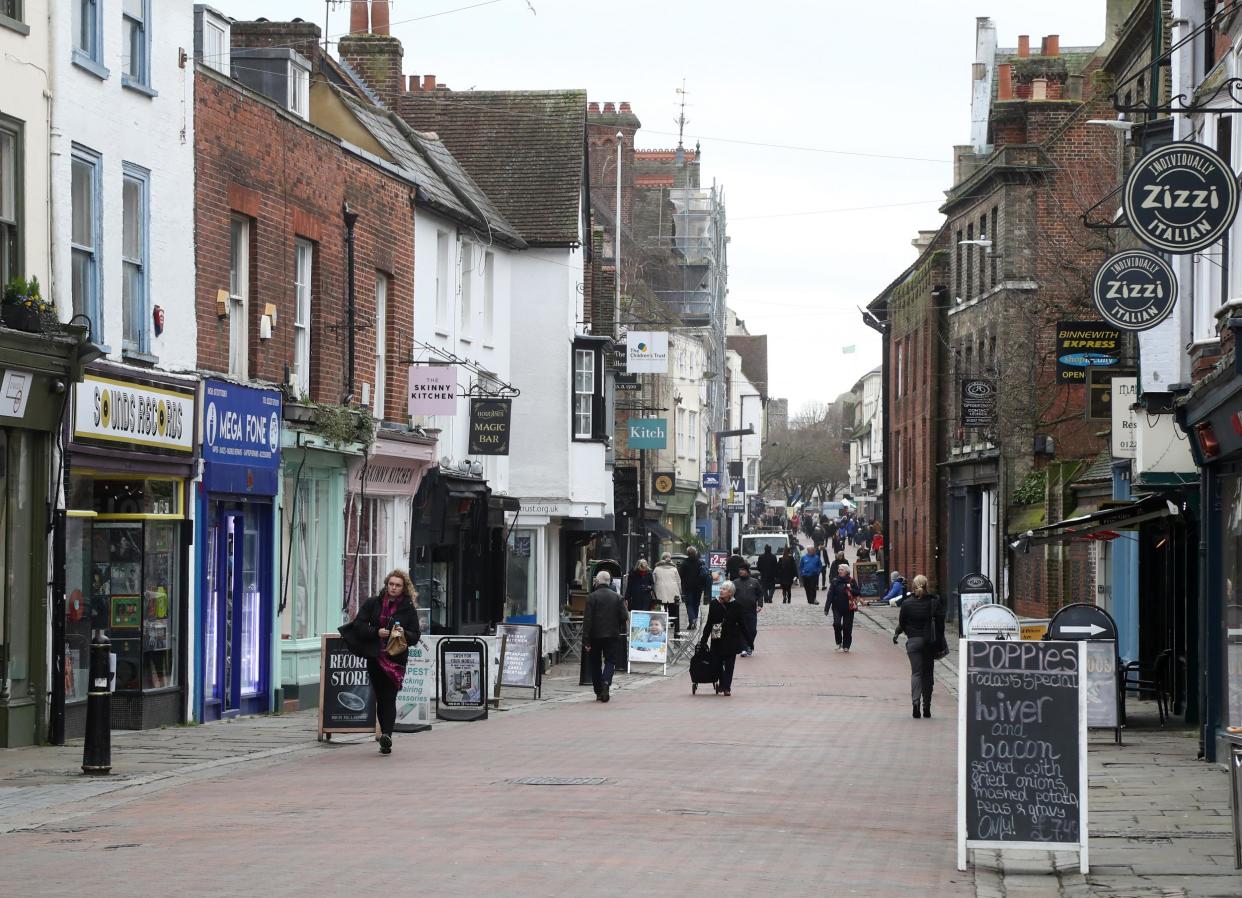Christmas slump in high-street sales boosts chances of interest-rate cut

An unexpected slump in high-street sales in December has fuelled expectations the Bank of England will cut interest rates at the end of the month to stimulate a flagging economy.
Retail sales volumes fell 0.6 per cent month-on-month in December after an 0.8 per cent monthly drop in November to the take the annual growth to just 0.9 per cent. It was the fifth consecutive month of no growth, a phenomenon unseen since the 1970s.
Spending fell pretty much across the board but was especially weak in department stores and clothing shops. The only sectors to register growth were online sales and fuel.
Economists had expected a monthly rise of 0.5 per cent, and the disappointing news triggered another sell-off in the pound to below $1.30 as traders bet that the bank’s monetary policy committee will order a cut in interest rates
“So not a very merry Christmas for retailers,” said Thomas Pugh, UK economist at Capital Economics. “Many retailers will be forgiven for asking if they even had a Christmas at all.” He said sales volumes fell by 0.9 per cent on a quarterly basis, the worst for almost three years.
“December’s outright fall in retail sales, despite a potential boost from the lateness of Black Friday, does not bode well for GDP growth in December and could nudge the Monetary Policy Committee yet closer still to cutting rates at the end of the month.”
Richard Lim, CEO of consultancy firm Retail Economics, said the numbers painted a “pretty bleak” picture for Christmas trading, especially for the food sector, adding that it could contribute to a contraction of the overall economy in the final quarter of 2019.
He said that consumers had clearly remained very cautious in their discretionary spending, despite evidence of healthier household finances. “Shoppers’ propensity to spend remained weak as uncertainty around Brexit and a weaker economy has severely undermined their confidence,” he said.
The figures echoed a downbeat survey by the British Retail Consortium that last week showed shops suffered their worst annual performance for at least a quarter of a century in 2019.
Friday’s figures capped a poor season for retailers that saw many issue profits warnings. John Lewis reported sales fell 2 per cent year-on-year in the seven weeks to 4 January and warned its staff bonus could be cut. Beales, one of the UK’s oldest department store groups, appears close to collapse while Arcadia Group, the owner of Topshop, Topman and Dorothy Perkins, is closing several stores.
For the three months to December, sales were 1 per cent down on the previous quarter. The Office for National Statistics indicated that would make a negative contribution of 0.05 percentage points to overall GDP growth.
Official figures on Monday showed the overall economy shrank by 0.3 per cent in November to leave the rolling three-month growth rate at just 0.1 per cent. December’s annual inflation rate showed a fall to 1.3 per cent from 1.5 per cent, further below the bank’s 2 per cent target.
Read more
An interest rate cut looks nailed on as economy continues to splutter

 Yahoo News
Yahoo News 
